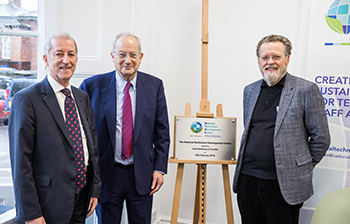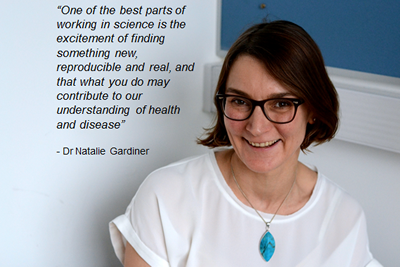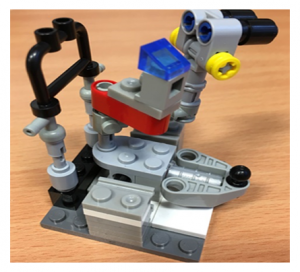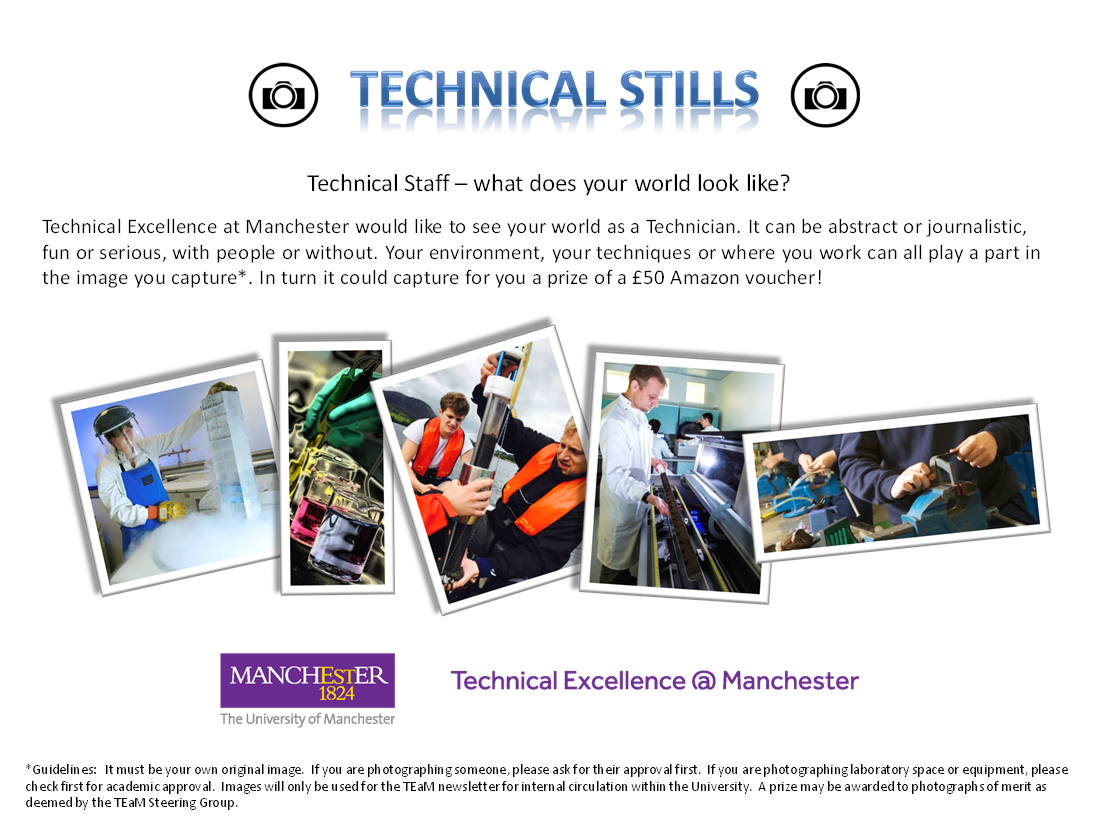
Lord Sainsbury was a special guest at the opening ceremony of the National Technician Development Centre for Higher Education which took place at the University of Sheffield on Tuesday 13 February 2018.
Welcoming him at the ceremony were the President and Vice-Chancellor of the University of Sheffield, Professor Sir Keith Burnett, and the Director of the National Technician Development Centre and Chairman of the Institute of Science and Technology (IST), Terry Croft.
The National Technician Development Centre for Higher Education was set up following an investment of £1.125 million, including £546,000 from the Higher Education Funding Council for England (HEFCE) and funding from the University of Sheffield and other partners of more than £580,000.
The centre will provide higher education institutions with access to information, expertise and tools that will enable them to create a sustainable future for their technical staff and services.
It will work with partners in higher education and related institutions to provide a national framework for standardised job titles, grading and career pathways across the technical workforce, including plans to increase the number of apprentices working in the sector, ensuring the workforce of the future is fully equipped to meet the needs of higher education institutions.
On opening the centre, Lord Sainsbury spoke of the importance of developing the technical workforce: “I believe the work that the National Technician Development Centre is doing is of national importance due to the tireless efforts of Terry Croft and his colleagues and the inspirational leadership of Sir Keith Burnett.
“It is also a real breakthrough that HEFCE has committed serious funding, alongside the University of Sheffield and other partners, to enable the National Technician Development Centre to expand the support it offers to higher education institutions around the country”.
Professor Sir Keith Burnett, who is President of the Science Council and the President and Vice-Chancellor of the University of Sheffield, has been a long-term advocate for technical education through his work with HEaTED (Higher Education and Technicians Educational Development) and the Science Council. He said: “I am absolutely delighted that Lord Sainsbury formally opened the National Technician Development Centre, a national facility to support and develop the professional technicians who are so crucial to universities and to the UK’s future in science and innovation.
“Today is also the expression of many years of hard work by people such as Terry Croft who have recognised the importance of professional technicians for many years.
“As a scientist, I am only too aware that from the most delicate medical experiment to the great Hadron Collider at CERN and the grand fusion project at Culham, Science often relies on the most skilled technicians. Yet these vital individuals do no come from nowhere.
“They need support to develop their careers and the recognition that will motivate the most able young people to flourish in their work. The National Technician Development Centre will offer exactly that.”
The work of highly skilled professional technicians can often be overlooked by the Higher Education sector and the challenges of recruitment are widely known. Research by the Gatsby Charitable Foundation suggests that the UK needs 700,000 more technicians by 2020.
The expertise of the team at the new national centre is available to universities across the UK and covers a number of strategic issues around restructuring technical services, business continuity, succession planning, recruitment and other related areas. This includes the Higher Education Institutions’ Technical Resources Toolkit, available to aid universities in understanding their technical staff and improving the sustainability of their technical services.
Terry Croft, Director of the new centre said: “We are delighted that Lord Sainsbury has officially opened the new national centre. It is a major landmark in professionalisation and modernisation of the UK technical community, especially in the higher education sector.
“It is vital to have this one stop shop at the National Technician Development Centre, where we can bring together expertise from across the sector, to solve the issues that employers and employees face today and into the future.
“We look forward to working with all higher education institutions and research institutions to deliver a sustainable future for technical staff and services.”
Lord Sainsbury also visited the University’s Advanced Manufacturing Research Centre (AMRC), which carries out world-leading research into advanced machining, manufacturing and materials and has more than 100 industrial partners, ranging from global giants like Boeing, Rolls-Royce, BAE Systems and Airbus to small companies.

 Director of Social Responsibility, School of Medical Science
Director of Social Responsibility, School of Medical Science


 “A couple of academics from Salford University ran a Crystal Maze-style session where one of the challenges was to build something out of Lego. I thought this is brilliant. I started thinking about how I could do this in my teaching,” Mr Gridley told OT.
“A couple of academics from Salford University ran a Crystal Maze-style session where one of the challenges was to build something out of Lego. I thought this is brilliant. I started thinking about how I could do this in my teaching,” Mr Gridley told OT.